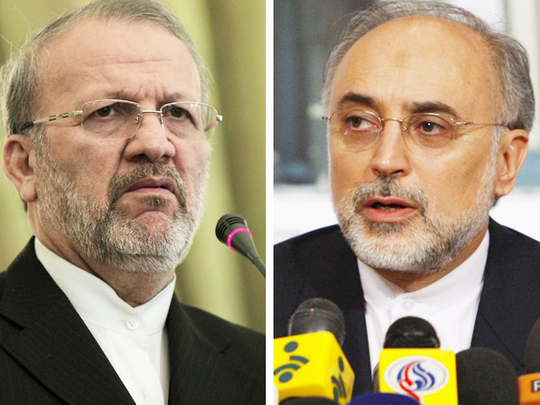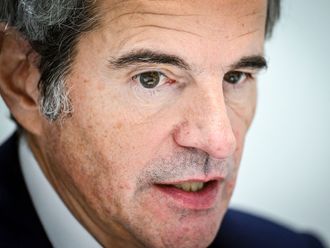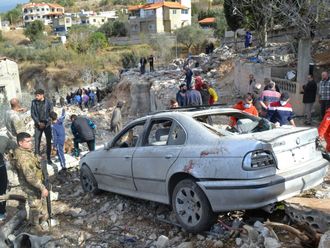
Dubai: In a sudden move, Iranian President Mahmoud Ahmadinejad on Monday fired his foreign minister, who was on an official visit to Africa, and named the country's nuclear chief as acting top diplomat a few weeks ahead of "crucial and decisive" round of talks over the controversial Iranian nuclear programme.
The dismissal of Manouchehr Mottaki was not surprising, but the timing was, analysts and political experts in Tehran said.
"I appreciate your diligence and services as the foreign minister," Ahmadinejad said in a letter to Manouchehr Mottaki, Irna reported.
Ahmadinejad appointed head of Iran's Atomic Energy Organisation Ali Akbar Salehi, a close ally of the president, as the caretaker for the ministry, state television reported, without giving any reason.
However, sources in Tehran said the move came as a result of differences in the viewpoints of the president and his foreign minister over many internal and foreign policy issues.
"It was expected," Ameer Mousavi, well-known Iranian strategic analyst, said, adding that the decision shows "the clear differences in visions and policies which surfaced" between Ahmadinejad and Mottaki. "The surprise was the timing," Mousawi told Gulf News.
Mottaki was in the middle of a tour of African nations that took him to Senegal delivering a message from Ahmadinejad to the Senegalese president.
According to a reformist website, Mottaki had been critical of Ahmadinejad's policies. "Mottaki failed to adjust himself to the president's viewpoints and his foreign policy," it was quoted as saying.
Mottaki, who served as Ahmadinejad's chief diplomat since the president was first elected in 2005, was considered from the camp of Iranian parliament speaker Ali Larijani, whose opinions and policies on several internal and external issues differ from those of Ahmadinejad.
Mottaki's dismissal comes just days after Iran held crunch talks with world powers over its controversial nuclear dossier. Further talks are scheduled for next month in Turkey.
"The appointment of Salehi means that the president wants to move the Iranian nuclear dossier... It also means that the [upcoming] Istanbul talks will be decisive and crucial," Mousavi said.
"Therefore, the Iranian president wanted all the institutions and parties involved in the nuclear talks to be in harmony with each other," the Iranian analyst said, so they will all enter the talks "in a unified and very strong position". They will be all under the control of Ahmadinejad.
Asked whether this means Iran will show any sign of leniency in the upcoming talks, Mousavi responded, "I would say, Iran's position will be more coordinated, and any change in Iran’s position will be within the vision of Iranian president Ahmadinejad."
Already, the Iranian president has shown no softening in his country's position vis-a-vis having a nuclear programme which Tehran insists is for civilian purposes, but many countries, especially among the western powers, fear it has military dimension.












